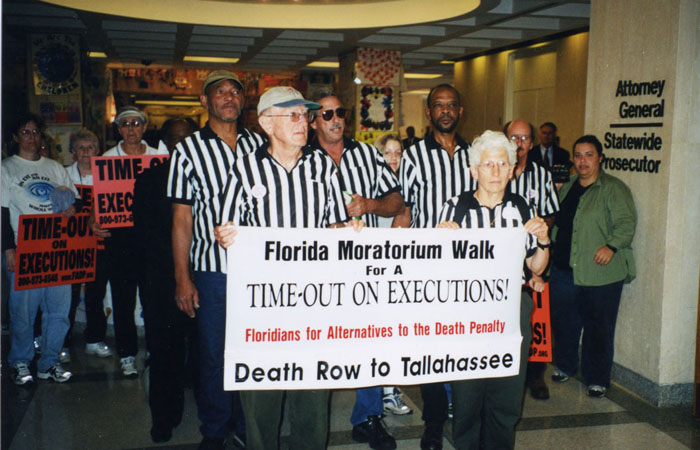The Illinois Coalition to Abolish the Death Penalty (ICADP) formed in 1976 as the Illinois Coalition Against the Death Penalty by Mary Alice Rankin and other activist groups and organizations to try to prevent passage of capital punishment legislation in Illinois. After the state adopted the death penalty in 1977, ICADP expanded its grassroots legislative, education, and communication activities to try to inform the public about flaws and injustices in the Illinois capital punishment system and promote humane alternatives to the death penalty.
Collections : [National Death Penalty Archive]
National Death Penalty Archive
Researchers, writers, activists, and records on capital punishment in the United States.
The National Death Penalty Archive (NDPA) is a partnership between the University at Albany Libraries and the Capital Punishment Research Initiative (CPRI) at the University's School of Criminal Justice. In 1999, researchers at the School of Criminal Justice formally established the CPRI. Its overarching goals were research and education -- initiate capital punishment research activities, facilitate collaboration among researchers, and make findings and information available to legal and criminal justice policymakers, practitioners, and the public. One of the original goals of the CPRI was to establish and maintain a collection of archival materials documenting the important history of capital punishment, and to provide resources for historical scholarship. This growing collection of archival materials is housed in the M.E. Grenander Department of Special Collections and Archives, which is located in the University's state of the art Science Library. Open since 1999, the new archival repository includes climate-controlled storage for more than 25,000 cubic feet. The following collections have been acquired for the NDPA through the collaborative efforts of the CPRI and the University Libraries; work is continuing to build this important link to the history of capital punishment in the United States.
Search Constraints
Start Over You searched for: Collecting Area National Death Penalty Archive Remove constraint Collecting Area: National Death Penalty Archive Names Illinois. Governor's Commission on Capital Punishment Remove constraint Names: Illinois. Governor's Commission on Capital Punishment Names Ryan, George H. Remove constraint Names: Ryan, George H. Place Chicago (Ill.) Remove constraint Place: Chicago (Ill.) Subject Criminal Justice and Prisons Remove constraint Subject: Criminal Justice and Prisons Date range 1988 Remove constraint Date range: <span class="single" data-blrl-single="1988">1988</span>
1 entry found
